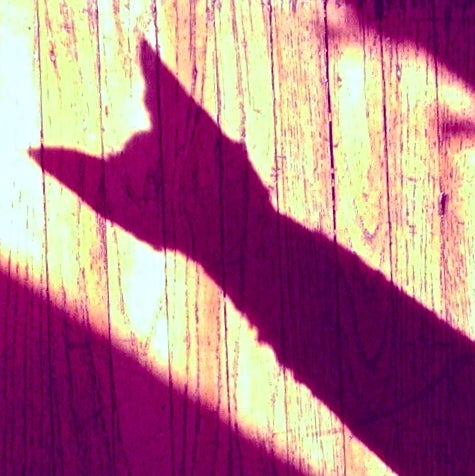OPEN LETTER FROM MARK Z. DANIELEWSKI ON HIS FORTHCOMING NOVEL OUT MAY 12: THE FAMILIAR (VOLUME 1)

Some years ago, while I was writing THE FAMILIAR, Carl would go downstairs to the kitchen and start yowling. Sufficiently trained by this sublime creature, I would race downstairs to fill his cat bowls with food and water. A little while later, though, the yowling would start up again. Again I would race downstairs, this time to discover his cat bowl emptied, his complaint a mystery. This routine persisted for a few days. I began to fear he was ill (but his life-consuming disease was still years away) or cranky (he never was) or just talking to ghosts ( . . . ). It was at the end of the week that the reason slowly dawned on me. I was working constantly. Dawns merging into dusks. I had forgotten I was hungry. I was forgetting to eat. Carl was concerned. And so we returned to dining together and his yowling stopped.
Perhaps some of you have known this experience — where the value of your time together is marked by the quality of your companionship, and that companionship is quantified by the hole left behind when it’s gone.
How wondrous, though, that such loyalty can so radically — and yes it is radical — extend beyond a playground, high school halls, Facebook. How awe-inspiring — and yes it is that beautiful — to understand that one word so often limited to our kind is only so caged by the stingiest minds. How its province is far more vast.
Of course, we all know the word. One of the early ones we learned that’s not about relatives, gender, or possessions. It shares an etymological heritage with “free” as well as “to love.” It is as old as the hills especially if we’ve learned to listen to those hills:
Friend.
I sometimes think that how we cultivate and honor our friendships may prove the only marker that counts when dust comes at last to claim us for itself. And not just cultivate and honor but expand upon. Have I befriended not just the satisfaction of the self but its substance too? Have I recognized that the known cadence of one language is not an excuse to ignore another? Have I also accepted that the absence of language is no excuse to refuse an act of welcome?
For nine years, I have had the immense good fortune to live among friends who have helped me lift into existence an absurd labor of love — is love ever really Love if it’s not a little absurd? A 27-volume novel; or at least the first third. Those friends include many I’ve played with, learned with, worked with, fought with, lived beside, whose paths I’ve haphazardly crossed, whose digital presence announced itself with a hi or a wink or a curse. Nor will I forget the many readers who stood by me over the years — who cared passionately about a blue word (HOUSE OF LEAVES); who understood that syntax, no matter how much it promises, cannot be political if it lacks invention (ONLY REVOLUTIONS); who understand that image too has a voice (THE FIFTY YEAR SWORD); who know by heart that where non-fiction is the biography of history, literature is the autobiography of the imagination, that without strong imaginations we permanently place ourselves beyond change (because the reason we need to read what’s made up is to put into practice making up for ourselves a world no longer compelled to carry out injustices and sufferings ordained by pasts and even tyrannical futures).
And how woefully incomplete all of this would still be if I did not include those who require the most imagination, who live beyond the classification of humanity, who claim only the sky as their home, or the seas, or an old oak tree. Carl.
Without you I could not have imagined the individuals now inhabiting my new book. So of course they are friends too, dear friends, for they are not just born from my thoughts, but reliant on yours as well, on the many I’ve sat down with, or read about, or just overheard, or met again and again, or never met, beyond reading, beyond imagination, capable of profound selflessness, silence, terrible violence, who are as defeated by dangerous cravings as they are victorious in their curiosity, courage, and sense of honor.
In one way, THE FAMILIAR comes down to a large family, as disparate in background as it is forever bound together. In another way, though, it is just about one remarkable girl, who is as much an act of fiction as she is the daughter I’ve never had, the daughter we together have never had, blindly befriending those who dare encounter her, but most of all befriending the remarkable creature called forth from a place beyond language, maybe even beyond life itself, the necessity we never knew we needed, and just starting to yowl.
Not for its own needs.
But for ours — for we who have forgotten we’re hungry.
— Mark Z. Danielewski